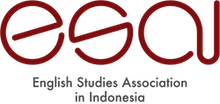Revealing Gender Ideology in Integrated Korean Language Textbooks through Theme-Rheme Structures:
A Systemic Functional Analysis
DOI:
https://doi.org/10.30996/anaphora.v8i1.131896Keywords:
Feminist Ideology, Gender Roles, Theme-Rheme, Thematic Progression, Systemic Functional ApproachAbstract
This study adopts a Systemic Functional Linguistic (SFL) approach grounded in Halliday’s theoretical framework to investigate Theme-Rheme structures in the Integrated Korean Language textbooks . This research is significant as prior studies on Korean language textbooks have largely overlooked the interplay between thematic structure and ideological representation, leaving a gap in understanding how discourse patterns contribute to implicit cultural messaging. The primary objective is to examine the deployment of marked and unmarked themes as well as the patterns of thematic progression within narrative and descriptive texts. The data are drawn from Volumes 3 and 4 of the textbooks, which encompass cultural, object-related, and activity-based themes. The findings indicate that the majority of clauses adhere to the Simple Linear Thematic Progression pattern, wherein the rheme of one clause becomes the theme of the subsequent clause, thereby contributing to a cohesive and logically sequenced discourse. In certain instances, Complex Linear Progression patterns were also observed, offering extended elaboration of central ideas. Material and relational processes are predominantly employed to represent actions and identity relationships, illustrating how lexical choices such as verbs and conjunctions function to structure the narrative. Furthermore, the analysis reveals the implicit integration of feminist ideology gender roles within the texts, particularly concerning evolving gender roles in contemporary Korean households. The thematic patterns identified reflect broader social values and ideological transformations embedded in the educational material, conveying underlying messages that promote gender equality and advocate for more equitable social roles. The thematic patterns identified in the texts function not only to organize information but also to foreground specific social actors and actions that align with feminist ideology. By consistently thematizing female subjects, progressive roles, or relational identities, the texts reflect and reinforce broader social values of gender equality and contribute to the ideological transformation toward more equitable gender norms.Downloads
References
Djonov, E., & Zhao, S. (2017). Critical Multimodal Studies of Popular Discourse. Routledge.
Eggins, S. (2004). An Introduction to Systemic Functional Linguistics (2nd ed.). London: Continuum.
Fairclough, N. (1995). Critical Discourse Analysis: The Critical Study of Language. London: Longman.
Haegwon, J. (2022). An analysis of theme-rheme and topic-comment in information structure of Korean: based on sentence-initial and aboutness. Linguistic Typology Research, 7(1), 1–28.
Halliday, M. A. K., & Matthiessen, C. M. I. M. (2014). Halliday’s Introduction to Functional Grammar (4th ed.). London: Routledge.
Handford, M., & Gee, J. P. (Eds.). (2023). The Routledge handbook of discourse analysis. London and New York: routledge.
Ismail, T. G., Rofi'i, A., & Herdiawan, R. D. (2021). Textbook Elucidation: An Analysis of Thematic Structure and Progression on the Ministry of Education and Culture Grade X English Textbook Revision Edition. In National Conference on Language, Education, and Technology Proceeding (Vol. 1, No. 1, pp. 155-163).
Kıraç, Z. K. Language and ideology: semiologic transformation. RumeliDE Dil ve Edebiyat Araştırmaları Dergisi, (Ö13), 976-983.
Li, L. (2016). The representation of ideology in Chinese EFL textbooks: A critical discourse analysis. Higher Education Studies, 6(2), 44–49.
Machin, D., & Mayr, A. (2012). How to Do Critical Discourse Analysis: A Multimodal Introduction. London: SAGE.
Mahfud, A., Rusmawaty, D., & Kalukar, V. J. (2024). Theme and Rheme Analysis in Kurikulum Merdeka English Textbook of Junior High School. Berumpun: International Journal of Social, Politics, and Humanities, 7(1), 15-25.
Martin, J. R., & Rose, D. (2007). Working with Discourse: Meaning Beyond the Clause (2nd ed.). London: Continuum.
Pratama, S. Y., Nurkamto, J., & Wijayanto, A. (2021). The representation of multicultural values in National Mandatory English textbooks used in Indonesian secondary schools. International Journal of Multicultural and Multireligious Understanding, 8(1), 472.
Santosa, R. (2016). Critical discourse analysis (CDA): Systemic functional linguistics (SFL). In Prasasti: Conference Series (pp. 46-57).
Setyono, B., & Widodo, H. P. (2019). The representation of multicultural values in the Indonesian Ministry of Education and Culture-Endorsed EFL textbook: a critical discourse analysis. Intercultural Education, 30(4), 383-397.
Susanto, R. U., & Fitriyah, F. K. (2020). Representation of Ideological Education in the Nusantara Fiction. Linguistic, English Education and Art (LEEA) Journal, 4(1), 192-205.
Van Dijk, T. A. (1995). Ideological discourse analysis. MOARA–Revista Eletrônica do Programa de Pós-Graduação em Letras ISSN: 0104-0944, 2(06), 13-45.
Wengrum, T. D. (2020). An analysis of English textbook in the first grade of junior high school. Journal of Research in Language Education, 1(1), 26-30.
Wodak, R. (2001). The Discourse-Historical Approach. In R. Wodak & M. Meyer (Eds.), Methods of Critical Discourse Analysis (pp. 63–94). London: SAGE.
Yun, Y. J. (2024). A Study on Chinese Text Thematic Progression Pattern. The Journal of Chinese Language and Literature, 145, 51–73. https://doi.org/10.25021/JCLL.2024.4.145.51
Downloads
Published
How to Cite
Issue
Section
License
Authors whose manuscript is published will approve the following provisions:
-
The right to publication of all journal material published on the jurnal anaphora website is held by the editorial board with the author's knowledge (moral rights remain the property of the author).
-
The formal legal provisions for access to digital articles of this electronic journal are subject to the terms of the Creative Commons Attribution-ShareAlike (CC BY-SA) license, which means Jurnal Persona reserves the right to store, modify the format, administer in database, maintain and publish articles without requesting permission from the Author as long as it keeps the Author's name as the owner of Copyright.
-
Printed and electronic published manuscripts are open access for educational, research and library purposes. In addition to these objectives, the editorial board shall not be liable for violations of copyright law.














